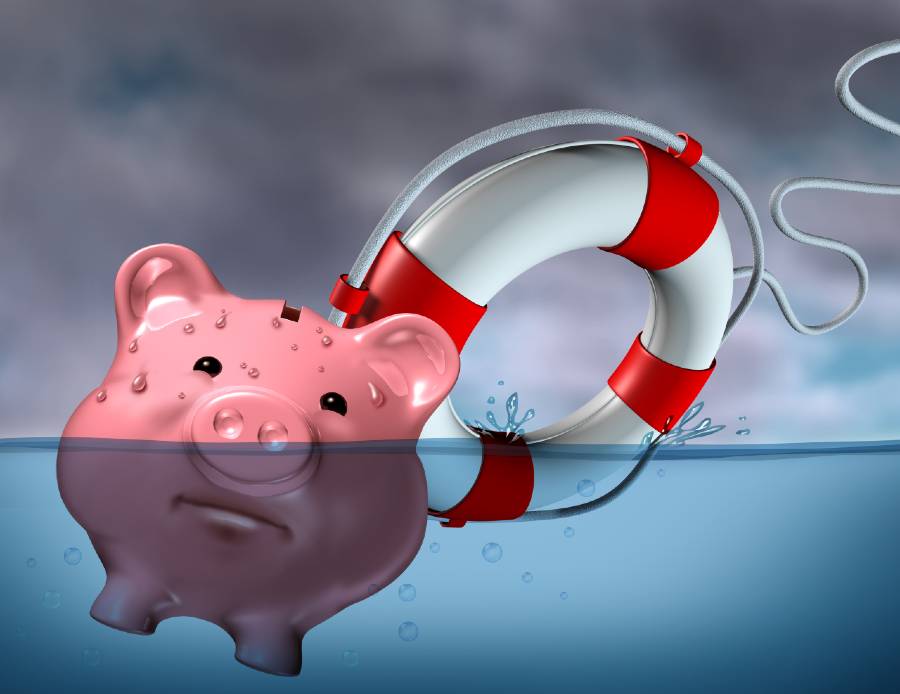As you check your balance on your credit card statement, your heart sinks again, knowing how far you are in the hole. There is another perspective to consider. How are you doing as compared to other Canadians? You know that household debt is at a high level across the country, specifically increasing over the past couple of years. So, do you have more consumer debt than average?
Many people check their credit scores and reports more often now. Equifax Canada, one of our credit bureaus that keeps track of your credit score, recently held a survey to find out more.
What Was The Equifax Survey All About?
For the 2022 Financial Literacy Month, Equifax conducted a survey. They asked 1006 Canadians to complete an online survey between October 6th and 17th. The aim? To see how Canadians are keeping up with monthly bills, debts, housing, and saving for retirement. Here are some insights into how the amount of debt you have now will impact the long term.
Important Survey Findings For Canadians
The Equifax survey says that the average Canadian’s non-mortgage debt is $21,188. That sure sounds like a lot, and consumer debt is increasing, but what does that number really mean?
There’s no surprise that housing debt increased since housing prices did, too. It’s the consumer debt increase It leaves half of Canadians uncomfortable about finances. Yet, just last year, almost 61% of Canadians felt good about their personal finances. Now, almost 73% of Canadians over 65 worry about monthly payments. While 40% of younger adults (aged 18 to 34) have the same concern.
Household Debt Across the Country
Canadians on both coasts are anxious about their personal finances. Albertans worry the least (48%), while British Columbia (60%) and Atlantic Canada 62%) rated the highest.
Quebecers have the most concern about job security (49%). Alberta’s ahead again with the least anxiety at 27%.
Quebecers (46%) also fret the most about paying off debts like mortgages, student loans, credit card debt, and auto loans. While Albertans continue to be the least concerned at 29%.
Overall, Canadians of all ages, all across the country, show concern about their financial situation. Credit card use continues to increase, reaching a historically high level. Equifax Canada tells us that the use of credit cards has steadily increased over the last 18 months. Making history, average credit card balances were $2,121 at the end of September 2022. The highest they’ve ever been. Despite decreasing during the pandemic, at $21,188, the average non-mortgage debt is back to pre-pandemic levels.
Why Is Consumer Debt So High?
Many aspects of the global and national economies influence consumer debt. For the average Canadian household, debt creeps up as these elements combine.
Two underpinnings for many other influences are the war in Ukraine and the COVID-19 pandemic. Both have interrupted supply chains. As lockdowns ended, pent-up demand was unleashed. Meaning many households returned to pre-pandemic spending patterns but are paying post-pandemic prices.
Higher Prices
Inflation rates drive up the costs of essential items, which reduces disposable income. You don’t get to stay home, even when it costs more to fill your tank to get to work. The inflation rate in Canada is 6.9%. This sets a record since the early 1990s and is more than triple the 2% target from the Bank of Canada this year.
Higher Credit Limits
Maxing out your card simply has more room now. Equifax reports that the current average credit limit is now $5,800.
No Wage Increases
Even though prices have gone up, wages have not.
Higher Interest Rates
Whether it’s your auto loans, student loans, mortgage or credit cards, the current high-interest rates are not helping you get ahead.
What Does This Mean For Canadians?
Let’s start with the good news. While things seem much worse, in reality, consumer debt levels remain about the same as in the last 5 years. In 2020, the debt service ratio was temporarily better. CERB payments and other COVID relief from the government had the desired impact of keeping the economy moving. Though the improvement didn’t last. The amount of debt returned to pre-COVID levels in 2021.
It looks like Canadians must take matters back into their own hands to make a difference in their personal finance. Getting ahead may get easier when prices and interest rates come down, and wages go up. For now, it’s time to spend wisely.
What Consumers Can Do To Reduce/Stay Out Of Debt
Canadians are a hardy bunch, even in these unprecedented times. Most of the typical money-saving and budgeting ideas still work. That being said, during these kinds of economic climates, you may find you have to get more extreme. Here are a few things you can do:
- Watch what you spend at the grocery store while making sure you eat well enough to maintain your health. Getting sick and being unable to work won’t help you get ahead financially.
- Check your credit card bills carefully for anything you can delete for next month or mistaken charges. Even a few bucks add up over a period of time.
- Carpools and transit may help you deal with the high price of gas.
- Some extra gig work could put some more cash in your pocket on the weekends.
- Consolidating debt can lower payments.
- Reduce or eliminate your impulse spending.
- Use coupons at the grocery store and price shop at various stores in your area.
What Is Equifax?
Equifax is a global data, technology and analytics company that keeps track of credit scores. They also provide credit reports to consumers, as well as, financial institutions, companies, and government agencies.
Equifax Canada also offers services such as;
- consumer credit monitoring
- identity theft prevention
- identity and fraud solutions
- risk information
- financial marketing
- analytical services
Conclusion
Consumer debt is making history. The Equifax survey results show that Canadians are reaching for credit cards to fill in the gap as interest rates increase, prices skyrocket, and housing costs rise. This leaves many trying to cope with higher payments with no raise in wages.
Contact us today if you find yourself struggling with extra consumer debt. A credit counsellor can discuss your options for a brighter financial future.









